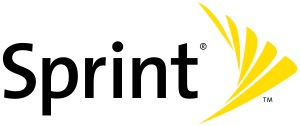Sprint Nextel, the nation’s third-largest wireless operator, announced this morning that it’s doing away with its 5GB $30 a month mobile hotspot add-on for smartphones and tablets.
Instead, beginning May 18, customers can choose between 2GB or 6GB data plans priced at $20 or $50 a month, respectively. As always, the deal involves some fine print you should be aware of…
The company argues that the new tiers will let everyone “try the mobile hotspot add-on at a lower entry point”.
If you currently have the 5GB/$30 a month mobile hotspot add-on, feel free to continue on this plan until you cancel service.
According to a press release, folks with a mobile hot spot add-on can opt-in to get notified when they reach 75, 90 and 100 percent of their on-network monthly data limit.
This is very important:
Additional on-network data usage above the monthly allowance is charged at $0.05/MB Monthly Off-network data usage limit is combination of Phone or Tablet and MHS usage.
For Tablets, the off-network data limit is driven by the tablet plan selected (either 100MB or 300MB) with a charge of $.25/MB for additional off-network usage.
This change won’t affect unlimited data on Sprint phones, the carrier confirmed.
As you know, Sprint is the only wireless operator among the big three in the United States to continue offering unlimited data.
“Data on many of Sprint’s phone plans continues to be unlimited, while on the Sprint network”, the carrier wrote.
Also, data generated on your phone remains unlimited on Everything plans that include data when the mobile hot spot functionality is disabled, including Everything Data, Simply Everything, Everything Business and Business Advantage Messaging & Data plans.
It’s also worth mentioning that any on-network data usage driven by other Wi-Fi enabled devices pulls from your monthly MHS data allowance.
Sounds good to us, as long as you remember to disable your mobile hot spot when not in use to avoid possible data overages.
We told you there’s a catch involved.
Thoughts?
